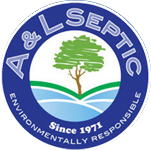Follow these tips on what to do and what to avoid doing when you have a septic system for waste management for your home or business. A good rule of thumb: If you haven’t, wouldn’t or couldn’t eat it – Don’t throw it into the septic tank!
Septic System Do’s
- Do spread laundry use over the week rather than many loads on one day. While it might be convenient to do so, dedicating an entire day to doing laundry will put a severe strain on your septic system. Consider connecting your laundry waste to a separate waste system (dry well or seepage pit). While not normally necessary, will reduce the load on the regular system and permit the survival of a marginal system. Space out your laundry loads and wash only full loads. The average load of laundry uses 47 gallons of water. One load per day rather than 7 loads on Saturday makes a big difference to your septic tank. Also, front loading washers use less water than top loaders.
- Use liquid laundry detergent. Powdered laundry detergents use clay as a ‘carrier’. This clay can hasten the buildup of solids in the septic tank and potentially plug the disposal area.
- Minimize the amount of household cleaners (bleach, harsh cleansers) and similar toxic substances. Detergents, kitchen waste, laundry waste and household chemicals in normal amounts do not affect the proper operation of household sewage treatment systems. However, excessive quantities can be harmful.
- Do make a permanent record of where the key parts of your septic system are located for future maintenance (i.e. sepitc pumping service or field repairs).
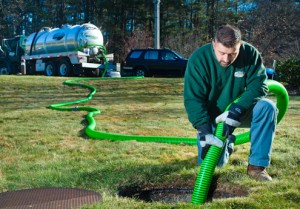 Do have septic pumping service regularly. The contents of the septic tank should be pumped every two to three years or when the total depth of sludge and scum exceeds one-third of the liquid depth of the tank. If the tank is not cleaned periodically, the solids are carried into the absorption field, or leach field as it’s more commonly referred to. Rapid clogging occurs; premature failure follows and finally, the leach field must be replaced. Pumping your septic tank is less expensive than replacing your leach field. Insist that the pumper clean your septic tank through the manhole in the center of the top of your septic tank, rather than the inspection ports above the inlet and outlet baffles.
Do have septic pumping service regularly. The contents of the septic tank should be pumped every two to three years or when the total depth of sludge and scum exceeds one-third of the liquid depth of the tank. If the tank is not cleaned periodically, the solids are carried into the absorption field, or leach field as it’s more commonly referred to. Rapid clogging occurs; premature failure follows and finally, the leach field must be replaced. Pumping your septic tank is less expensive than replacing your leach field. Insist that the pumper clean your septic tank through the manhole in the center of the top of your septic tank, rather than the inspection ports above the inlet and outlet baffles.- Do keep the records of septic pumping service and septic system maintenance.
- Do use water-conserving devices where possible. Low flush toilets and shower heads are commonly available. Install low usage water fixtures. Showerheads (2.5 gallons/minute), toilets (1.6 gallons), dishwashers (5.3 gallons, and washing machines (14 gallons).. By installing fixtures such as these, the average family can reduce the amount of water entering the septic system by 20,000 gallons per year!
- Do check any pumps, siphons, or other moving parts of your system regularly.
- Do remove or prevent trees with large root systems growing near the leach field. Don’t plant trees around your leach field. Roots from trees in the immediate area of the absorption lines may clog the system.
- Do check your interceptor drain regularly to ensure that it is free flowing.
- Run water regularly in seldom used drains such as sinks, tubs, showers, etc. to avoid noxious gases from building up and causing odors inside.
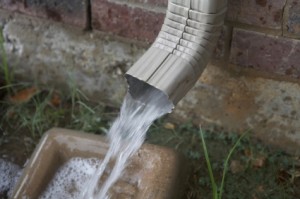 All roof, cellar and footing drainage, and surface water must be excluded from the system. Drainage water can be discharged to the ground surface without treatment. Make sure it drains away from your sewage treatment system. Roof downspouts should not drain toward the leach field.
All roof, cellar and footing drainage, and surface water must be excluded from the system. Drainage water can be discharged to the ground surface without treatment. Make sure it drains away from your sewage treatment system. Roof downspouts should not drain toward the leach field.- Backwash from water softeners contains salt that can damage your leach field. You should discharge this waste to a separate system or to the ground surface, away from your well and valuable vegetation.
- Keep swimming pools (above or in-ground) away from the leach field.
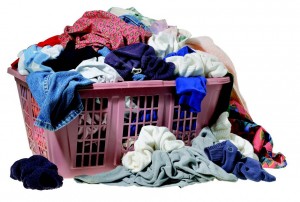
Septic System Don’ts
- Avoid garbage disposals. Garbage grinders substantially increase the accumulation of solids in the septic tank, as well as the solids entering the leach fields and pits. Their disadvantages far outweigh the convenience they provide and are not recommended for households with their own sewage treatment systems. If used, the septic tank size should be increased or the discharge should run through a separate tank first called a trash tank. Once installed, it should discharge into the septic tank or a separate leaching system and not directly to the existing leaching system. If you use a garbage disposal, pump more frequently – or better yet, compost your kitchen scraps. Disposals lead to buildup of grease especially from meat and bones, and insoluble vegetable solids.
- A few things (not a complete list) that should never go into the septic tank and leach fields.
- cigarette butts
- disposable diapers
- sanitary napkins & tampons
- handi-wipes
- pop-off toilet wand scrubbers
- trash
- condoms
- hair
- bandages
- rags & strings
- coffee grounds
- paper towels
- anti-bacterial soaps – biodegradable soaps only!
- no “biocompatible soaps”
- latex, plastic or metallic objects
- hard toilet paper – soft is better for the tank
- dead fish or small animals
- Don’t use chlorine and chemicals in excess – (1 part chlorine 5 parts of water is a good spray bacteria cleaner)
- Don’t allow water conditioning backwashes/discharge from water softeners, purifiers, sanitizers or conditioners; Dehumidifiers and air conditioner discharges; Hot tubs and jacuzzi discharges.
- Water from leaking fixtures including sneaky leaky toilets. Remember to dye test the toilet often to check for leaks in the septic system
- Avoid dirt and inert products. Muddy clothes, fruits and vegetables should be dusted off before washing them.
- Do not dispose of Chemicals from x-ray equipment, even if diluted because they will re-condense in the disposal system and eventually pollute the underground environment which is illegal!
- Do not use hair conditioners with heavy oils – if you use them, we need to know so we can do something to compensate with added or different bacteria (Avoid entirely if they are not bio-degradable).
- Keep Kitchen greases OUT of the septic system. It is not easily broken down and can clog your drain field. There are NO available solvents to dissolve these oils that are legal to the groundwater.
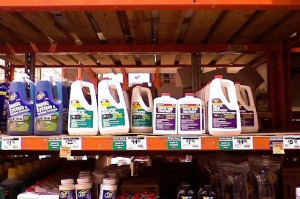 Septic tank additives are not recommended. Additives are unnecessary to the proper operation of household systems and may cause the sludge and scum in the septic tank to be discharged into the leach field, resulting in premature failure. Some additives may actually pollute your groundwater. You do not need to put special additives into your septic system. Those which advertise that they will remove solids from your tank usually do. The solids exit the tank and end up in the disposal field. Once there, the solids seal off the disposal area, and the system malfunctions. Also, although it hurts nothing, it is not necessary to “seed” a new system with yeast, etc. Normal human waste contains enough bacteria for the septic tank, and other microbes are already present in the soil and stones of the disposal area.
Septic tank additives are not recommended. Additives are unnecessary to the proper operation of household systems and may cause the sludge and scum in the septic tank to be discharged into the leach field, resulting in premature failure. Some additives may actually pollute your groundwater. You do not need to put special additives into your septic system. Those which advertise that they will remove solids from your tank usually do. The solids exit the tank and end up in the disposal field. Once there, the solids seal off the disposal area, and the system malfunctions. Also, although it hurts nothing, it is not necessary to “seed” a new system with yeast, etc. Normal human waste contains enough bacteria for the septic tank, and other microbes are already present in the soil and stones of the disposal area.
